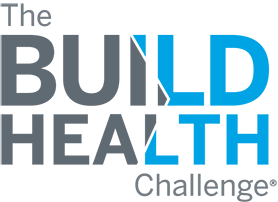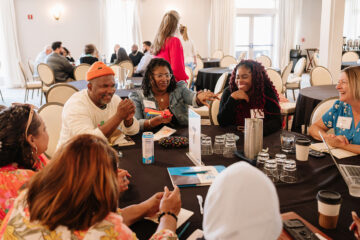In May 2023, The BUILD Health Challenge® (BUILD) announced the 13 communities awarded as part of BUILD’s fourth cohort. At the end of the first year, we are reflecting on the journeys those 13 collaboratives are making in their communities.
Community-centered multi-sector collaboration can vary widely in the earlier stages. Some awardees have been engaged in strong, community-centered collaboration efforts for years prior to participating in BUILD and are using this opportunity to deepen and strengthen their systems change strategies. Other awardees are using their BUILD partnership to try something new that aligns with the emerging needs of their communities. The narratives that awardees share with us teach us a lot about how it looks to be resilient, innovative, and committed to this work on the ground.
At BUILD, we believe in sharing our learning journey along the way in case it may be helpful to those who are doing similar work or are exploring similar concepts. Below, we have outlined four key themes that we see across the fourth cohort after their first year with BUILD.
Community Engagement and Resident Leadership
Across the collaboratives, there is a strong emphasis on engaging local residents and fostering their health equity and community leadership. The focus is on building trust, ensuring cultural and linguistic responsiveness, and integrating community members into decision-making processes to enhance their ownership and sustainability of projects. While some awardees are addressing challenges in gathering resident voices and others have established community leaders playing key roles in their collaborative, the topic of community and resident engagement is centered and valued across collaboratives.
Equitable Data Practices
BUILD collaboratives have a strong focus on taking an equitable approach to data-driven, health equity-focused advocacy. Local partners who are deepening their community engagement and resident leadership development are also centering those voices in their approach to data. Several teams are in the process of realizing their goals around equitable data practices. For example, teams are:
- Ensuring that the data collection process is community-centered,
- Inviting community-based committees to drive the analysis and action planning derived from the results of the data, and
- Sharing the data they collected back to the community who provided their stories and perspectives,
Part of the commitment to equitable data practices includes grappling with some of the challenges that can arise and adapting to the needs that the community expresses. In some cases, awardees’ commitment to equitable data practices has also led them to make the decision to collect less data or collect data in a different way so as not to overburden or exhaust communities. This responsiveness to community voice has led to some innovative solutions. One example is a team who developed a system for integrating informal relational check-in questions in existing meetings with community members. Those answers are then incorporated as qualitative metrics to better assess programming needs. Taking this approach allowed the team to decrease the amount of formal data collection they were doing (i.e. surveys) while still finding ways to gather important data for their system change efforts. Collaborative partners with strong community relationships are most effective in implementing equitable data practices.
Local Contexts and Adaptability
In this work, it is consistently evident that the local context is extremely important for health equity-focused systems change. The power of the BUILD model is that it is locally-driven; they determine both the problem and the solution because they are best positioned to understand not only their communities, but also the local context, including the assets and challenges of the area.
Several awardees are currently responding and adapting to local emergent issues. Some examples include local weather events causing displacement and requiring rapid response; a school-based funding crisis; and competing government dynamics. While some of these local issues didn’t emerge until well into the launch of the collaboratives’ plans, local partners are adapting and pivoting as needed to best respond to the community’s priorities.
Technical Assistance
One of the unique aspects of the BUILD model is the provision of both individualized and group technical assistance (TA) support and capacity building for each collaborative. BUILD’s TA (provided by our partners at ChangeLab Solutions) is enhancing collaborative initiatives in meaningful ways. The support that TA partners provide increases opportunities for awardees across all levels of implementation to identify avenues for policy advocacy, strategic planning, and more robust community engagement frameworks. For example, TA provided one collaborative with key research that unveiled a timely opportunity for local policy advocacy, building momentum on existing housing justice efforts in the area.
It takes time for awardees and TA providers to establish an impactful working relationship; it requires not only building trust but also understanding what support can look like. At the end of the first year, there is an increase in teams effectively utilizing TA capacity building to help advance their health equity goals.
***
After one year of community-centered, multi-sector collaborations supported by BUILD, the fourth cohort of collaboratives are expanding and pivoting on their existing plans, centering residents’ voices, and continuing to make a positive impact in their communities. As we head into the second year, we look forward to continuing to support and learn from their journeys.



